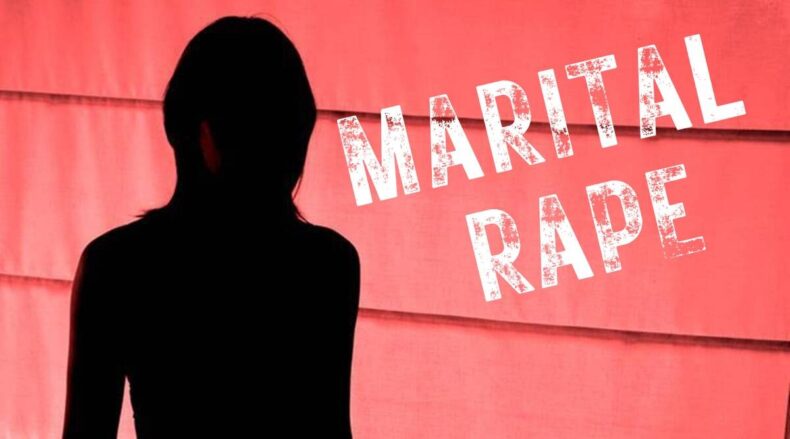
The SC has fixed May 9 as the date for a detailed hearing on a batch of petitioners relating to the criminalization of marital rape. It had earlier decided to start hearing petitions from March 14 and asked the center for their response, Tushar Mehta the Solicitor General responded, the case will not only have legal ramifications but widespread social impact as well.
Marital rape refers to non-consensual sexual intercourse between two partners who are married to each other. In India, marital rape is not recognized as a criminal offense. This means that under the Indian Penal Code, sexual intercourse between a husband and wife, even if it is without the wife’s consent, is not considered a crime.
The reason for this is that the law in India views marriage as a sacrament and considers it a duty of a wife to have sexual relations with her husband. The law assumes that a wife has given her consent to sexual intercourse by the marriage itself.
However, there have been efforts to change this law and criminalize marital rape in India. In recent years, there have been several cases where women have spoken out about being sexually assaulted by their husbands. Women’s rights activists and organizations have been campaigning for the recognition of marital rape as a crime and for laws to be changed to protect women from this form of sexual violence.
Many developed and developing countries like the USA, Canada, France, and Germany, France, etc. today recognize ‘marital rape’ as rape and have criminalized the offense.
Indian Scenario on Marital Rape

Sections 375 and 376 of the IPC deal with rape and the punishment of rape, respectively. The second exception to Section 375 of the IPC criminalizes marital rape and argues that sexual intercourse by a man with his wife, who is not under the age of 18, without her agreement is not rape.
A divisional bench of Delhi HC in May last year had a split verdict in a case of marriage, in which Justice Rajiv Shakdher, struck down as unconstitutional the second exception of Section 275 of IPC, and Justice C. Hari Shankar, rejected the plea to criminalize marital rape, that any change in the law must be carried out by the legislature and not of the judiciary.
A committee spearheaded by J.S. Verma in 2014, made a recommendation to the legislature by quoting “marital or other relationship between the perpetrator or victim is not a valid defense against the crimes of rape or sexual violation”.
An NGO Purush Aayog Trust filed a petition recently opposing the criminalization of marital rape in India, the petition stated, “A marriage can end without any sufficient evidence about a case of marital rape. If there is any evidence of forcible intercourse, then there cannot be any other primary evidence other than the testimony of the wife. This can easily destabilize the institution of marriage”.
It elaborated on the topic that there have been uncountable vases wherein women have misused the provisions provided to them under law, and they can become ‘easy tools’ for wives to harass and puppet their husbands especially considering the fact the quantum of punishment in rape cases is much higher and the burden of proof shall also be on the accused. And any statement made by the wife shall be treated as the pathr ki lakir and the husband shall not be able to lead any contrary evidence.













